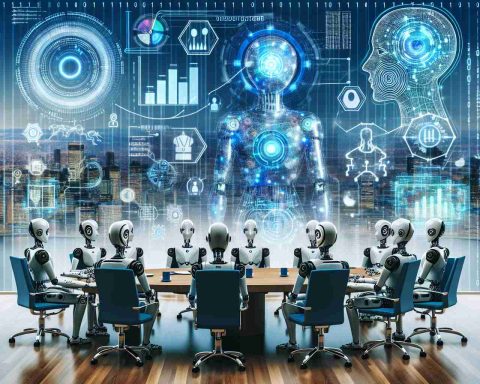The 31st International Defense Course is set to take place from September 23 to 27 in the Congress Palace of Jaca. Organized by the General Military Academy in collaboration with the University of Zaragoza, the event has attracted 130 participants from nine different countries, with expectations for more following a recent presentation in Zaragoza. Notably, Jaca will host representatives from 15 autonomous communities and 70 students from 20 universities, with women accounting for 30% of the attendees.
General Prudencio Horche, the newly appointed director of the General Military Academy, highlighted the pervasive influence of artificial intelligence (AI) across various sectors. He emphasized that every field has been enhanced by the capabilities that AI offers, which can transform operations, boost efficiency, and inspire new avenues for research and innovation, particularly within military contexts.
According to Ana Isabel Allueva, the Vice-Rector for Digital Education and Lifelong Learning at the University of Zaragoza, the integration of AI is fundamentally altering professional and daily life, reshaping the foundational elements of global defense. However, this emerging technology also brings forward significant concerns regarding ethical considerations, security implications, and the urgency for appropriate regulations.
Colonel José Manuel Pedrosa, the course director, outlined the comprehensive curriculum that will address AI’s implications in various contexts, including crime, justice, ethics, defense, and business. The event has garnered support from the Government of Aragón, the City Council of Jaca, and several other organizations.
Exploring AI in Security: A Global Perspective
The integration of artificial intelligence (AI) into security frameworks is a rapidly evolving landscape, presenting both opportunities and challenges on a global scale. With advancements in AI technology, countries around the world are rethinking their approaches to national security, law enforcement, and defense strategies. The implications of these technologies go far beyond traditional security measures, affecting privacy, ethics, and international relations.
Key Questions and Answers
1. What are the primary benefits of AI in security?
AI offers enhanced surveillance capabilities, predictive analytics, and faster response times to emerging threats. These technologies can analyze vast amounts of data in real-time, identifying patterns and anomalies that human analysts might miss. The result is improved situational awareness and the potential for preemptive actions against threats.
2. What are the critical challenges of integrating AI into security systems?
One significant challenge is the potential for biased algorithms leading to discriminatory practices in law enforcement. Ethical considerations also arise regarding privacy infringements as AI systems often require extensive data collection. Additionally, there are concerns about the cybersecurity of AI systems themselves, as they are vulnerable to adversarial attacks.
3. How do international cooperation and regulation surrounding AI in security differ by region?
Different regions exhibit varying degrees of regulatory frameworks. The European Union, for instance, has taken a proactive stance with its AI regulations, focusing on transparency and ethics. In contrast, other nations may prioritize rapid technological advancement without comprehensive regulatory oversight, leading to a potential patchwork of global standards and practices.
Advantages of AI in Security
– Efficiency and Speed: AI systems can process and analyze data at a speed that far exceeds human capabilities.
– Cost-Effectiveness: Automating certain security functions can reduce costs associated with human resources.
– Enhanced Decision-Making: AI supports strategic decisions through real-time data analysis and predictive modeling.
Disadvantages of AI in Security
– Ethical Concerns: The deployment of AI raises serious ethical questions surrounding surveillance, consent, and individual rights.
– Dependence on Technology: An over-reliance on AI could lead to vulnerabilities if systems fail or are compromised.
– Job Displacement: The automation of security roles may lead to job losses within the sector, raising socioeconomic concerns.
Conclusion
As artificial intelligence continues to permeate various aspects of security, it is essential for stakeholders—from government bodies to private organizations— to navigate the complex interplay of benefits and risks. Developing sound policies that balance innovation with ethical responsibility will be crucial in shaping the future of global security.
For further insights on this topic, visit AITRends and explore the evolving intersection of AI and security. Additionally, check out National Institute of Standards and Technology for resources on AI standards and best practices.

















